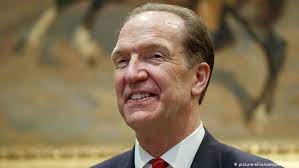The World Bank has explained why Nigeria, Ghana and some other countries refused to participate in a temporary suspension of debt service payments under its Debt Service Suspension Initiative (DSSI), saying the affected countries are concerned about future access to debt and credit-rating downgrades.
The DSSI offered 73 IDA-eligible and least developed countries a temporary suspension of debt-service payments owed to official bilateral creditors.
The Breton Woods institution, which gave this hint in its latest International Debt Statistics 2022 report published on Monday, stated that “as of September 2021, 48 countries were participating in the DSSI. Other eligible countries chose not to participate for various reasons. Countries with market access, like Ghana and Nigeria, had concerns about future access and credit-rating downgrades.”
According to the bank, in 2020 Nigeria had a 16 percent increase in the non-guaranteed debt of the private sector while also recording a 17 percent rise in external debt stock largely driven by the country’s $3.4bn loan from the IMF.
The report stated: “In sub-Saharan Africa, both Ghana and Nigeria recorded a 17 per cent increase in external debt stocks driven by purchases from the IMF of $1bn and $3.4bn, respectively, plus in Ghana, the $3bn pre-pandemic Eurobond issue, and for Nigeria, a 16 per cent rise in the non-guaranteed debt of the private sector.”
The World Bank reported that at the end of 2020, the 10 largest borrowers eligible for DSSI, including Nigeria, accounted for $509 billion of external debt stock and 65 percent of the end-2020 private non-guaranteed external debt.
It further clarified: “There was wide divergence in the rate at which external debt accumulated in individual DSSI-eligible countries, including the group’s largest borrowers.
“The combined external debt stock of the 10 largest DSSI-eligible borrowers (Angola, Bangladesh, Ethiopia, Ghana, Kenya, Mongolia, Nigeria, Pakistan, Uzbekistan, and Zambia) was $509bn at end-2020, 12 per cent higher than the comparable figure at end-2019 and equivalent to 59 per cent of the external debt obligations of all DSSI-eligible countries combined.
“They also accounted for 65 percent of the end-2020 private non-guaranteed external debt of DSSI-eligible countries”, the bank added.






